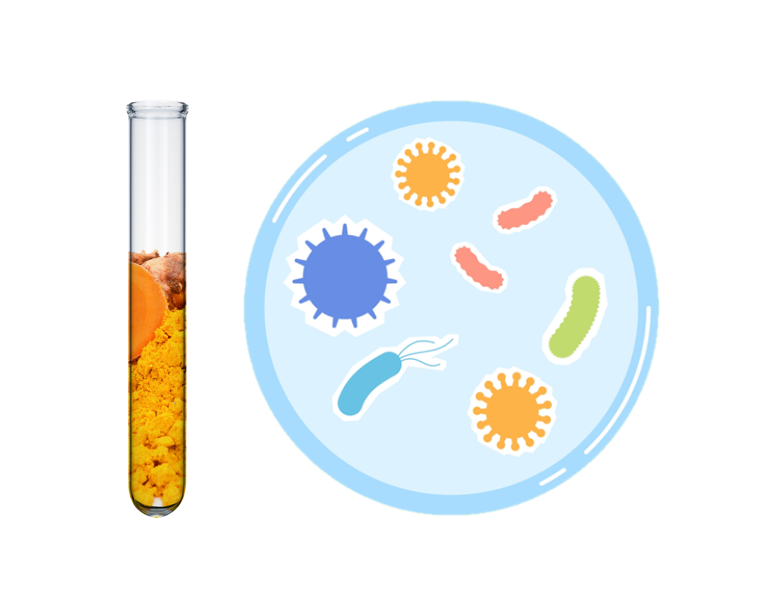Broad antimicrobial potential of curcumin

Dear colleagues,
It is well known that curcumin is a potent antioxidant that interacts with different types of radicals, such as hydroxyl radical (OH), nitric oxide (NO), oxidized glutathione and oxidants such as hydrogen peroxide. It has also been shown that curcumin can react with non-physiological radicals and peroxides, such as tert-butyl peroxide.
The chemical structure of curcumin, which includes an extensive conjugated system of double bonds, can readily accept single electrons from reactive oxygen species (ROS) forming a semiquinone radical structure, or lead to the formation of OH and H2O2.
Therefore, it seems that their effects are similar Vitamin E and Superoxide Dismutase at the same time.
In addition, although the mechanism is not well known, recent studies associate curcumin with a broad antiviral and antibacterial activity, e.g. against several types of viruses, Staphylococcus, Streptococcus and Pseudomonas.
In this article you can find a good summary of the latest studies on curcumin as an antimicrobial and possible mechanisms of action.
To finish just we want to remember that although curcumin is a potent molecule it’s also very sensitive thus must be protected and enhanced.
Enjoy the article.


 ES
CERRAR X
ES
CERRAR X